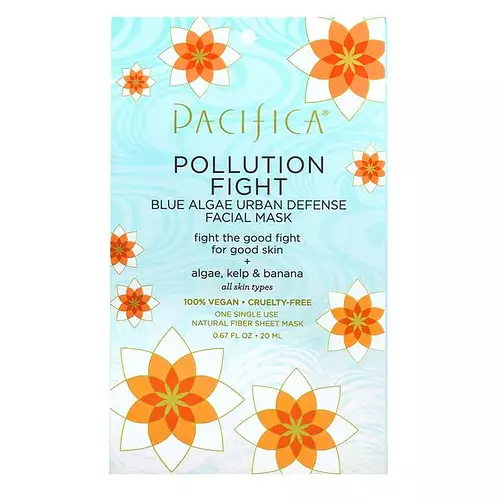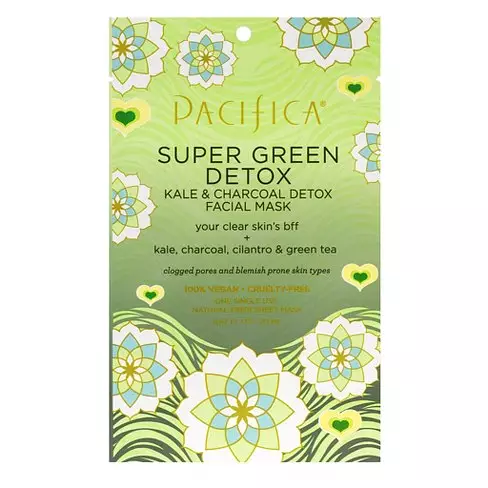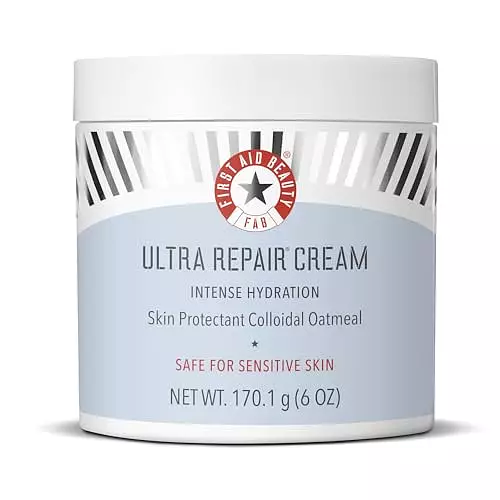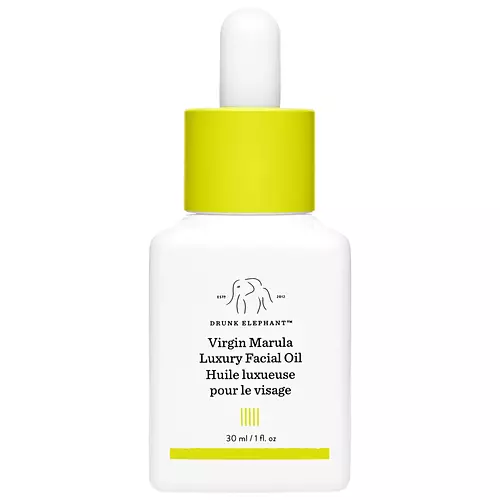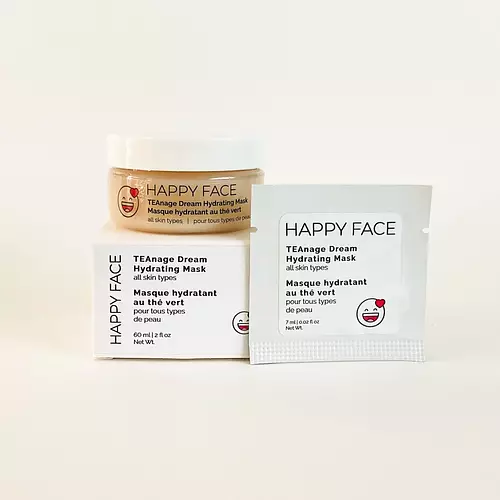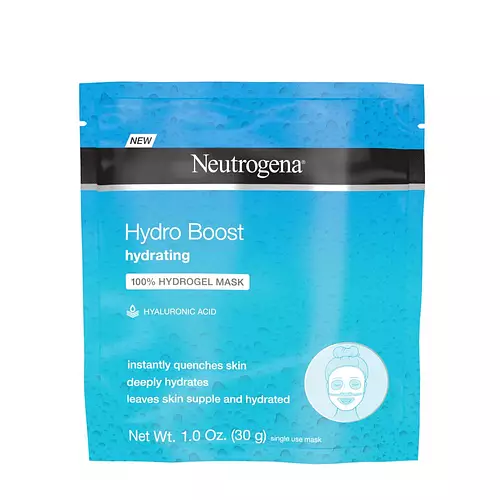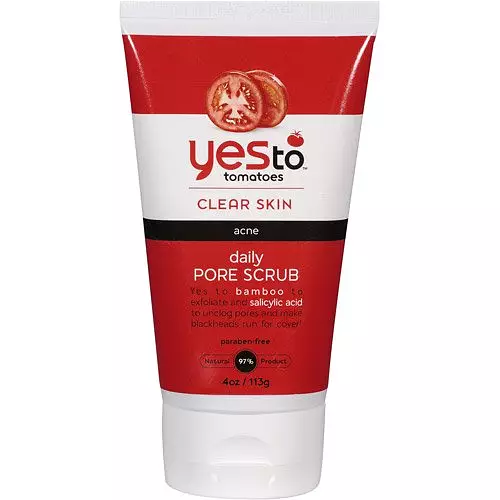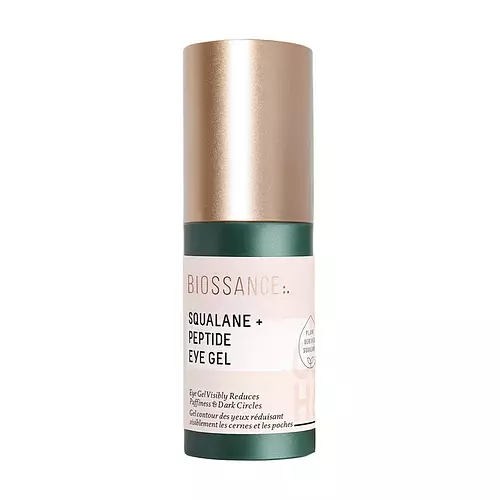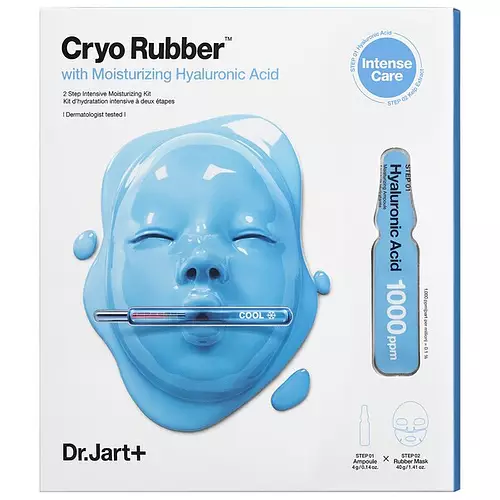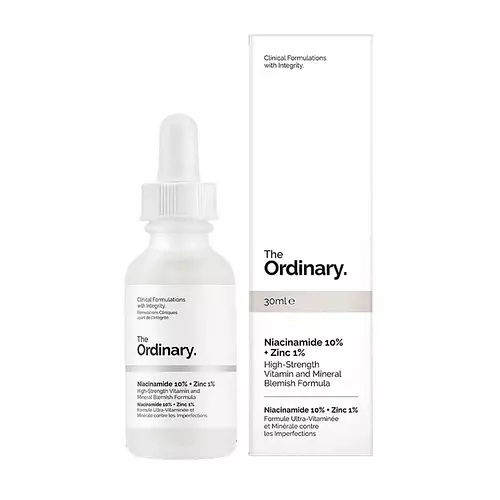Overview
What they are
These products are both vegan, cruelty-free, fungal acne (malassezia) safe, and reef safe sheet masks. They have a total of 12 ingredients in common
Cool Features
They both contain Vitamin C
Suited For
They're both likely to be good for anti aging, dry skin, brightening skin, sensitive skin, scar healing, dark spots and better texture
Free From
They both do not contain any harsh alcohols, common allergens, oils, parabens, silicones or sulfates
What's Inside
They both contain fragrances
We independently verify ingredients, and our claims are backed by peer-reviewed research. Spot a product that needs an update? Let us know.
Ingredient Info
Pacifica Pollution Fight Blue Algae Urban Defense Facial Mask 18 ingredients
Pacifica Super Green Detox Kale and Charcoal Face Mask 15 ingredients
At a glance
Click on any of the items below to learn more
Pacifica Pollution Fight Blue Algae Urban Defense Facial Mask 18 ingredients
Pacifica Super Green Detox Kale and Charcoal Face Mask 15 ingredients
Notable Ingredients
This product contains 1 ingredient that may have this attribute:
This product contains 1 ingredient that may have this attribute:
Benefits
This product contains 1 ingredient that may have this attribute:
This product contains 2 ingredients that may have this attribute:
This product contains 1 ingredient that may have this attribute:
This product contains 1 ingredient that may have this attribute:
This product contains 1 ingredient that may have this attribute:
This product contains 1 ingredient that may have this attribute:
This product contains 1 ingredient that may have this attribute:
This product contains 2 ingredients that may have this attribute:
Concerns
This product contains 1 ingredient that may have this attribute:
This product contains 1 ingredient that may have this attribute:
Notable Ingredients
This product contains 1 ingredient that may have this attribute:
This product contains 1 ingredient that may have this attribute:
Benefits
This product contains 1 ingredient that may have this attribute:
This product contains 2 ingredients that may have this attribute:
This product contains 1 ingredient that may have this attribute:
This product contains 1 ingredient that may have this attribute:
This product contains 1 ingredient that may have this attribute:
This product contains 1 ingredient that may have this attribute:
This product contains 1 ingredient that may have this attribute:
This product contains 2 ingredients that may have this attribute:
Concerns
This product contains 1 ingredient that may have this attribute:
This product contains 1 ingredient that may have this attribute:
Ingredients Side-by-side
Ingredients Explained
These ingredients are found in both products.
Ingredients higher up in an ingredient list are typically present in a larger amount.
Water. It's the most common cosmetic ingredient of all. You'll usually see it at the top of ingredient lists, meaning that it makes up the largest part of the product.
So why is it so popular? Water most often acts as a solvent - this means that it helps dissolve other ingredients into the formulation.
You'll also recognize water as that liquid we all need to stay alive. Talk about multi-purpose! If you see this, drink a glass of water. Stay hydrated!
Learn more about WaterGlycerin is already naturally found in your skin. It helps moisturize and protect your skin.
A study from 2016 found glycerin to be more effective as a humectant than AHAs and hyaluronic acid.
As a humectant, it helps the skin stay hydrated by pulling moisture to your skin. The low molecular weight of glycerin allows it to pull moisture into the deeper layers of your skin.
Hydrated skin improves your skin barrier; Your skin barrier helps protect against irritants and bacteria.
Glycerin has also been found to have antimicrobial and antiviral properties. Due to these properties, glycerin is often used in wound and burn treatments.
In cosmetics, glycerin is usually derived from plants such as soybean or palm. However, it can also be sourced from animals, such as tallow or animal fat.
This ingredient is organic, colorless, odorless, and non-toxic.
Glycerin is the name for this ingredient in American English. British English uses Glycerol/Glycerine.
Learn more about GlycerinXanthan gum is used as a stabilizer and thickener within cosmetic products. It helps give products a sticky, thick feeling - preventing them from being too runny.
On the technical side of things, xanthan gum is a polysaccharide - a combination consisting of multiple sugar molecules bonded together.
Xanthan gum is a pretty common and great ingredient. It is a natural, non-toxic, non-irritating ingredient that is also commonly used in food products.
Learn more about Xanthan GumAscorbic Acid is is pure Vitamin C. This form makes up the largest amount of vitamin C found naturally in our skin.
Not only is vitamin C great for your overall health and immune system, it also has plenty of benefits on your skin.
Vitamin C is best used for brightening skin. It improves dark spots, acne scars, and hyperpigmentation. This is because it blocks the process of skin darkening when exposed to UV.
Remember: Vitamin C should not replace sunscreen!
Your skin uses vitamin C to build collagen. Collagen is one key component in having a strong skin barrier and plump skin. Vitamin C also plays a role in regulating collagen, thus making it effective in improving wrinkles and fine lines.
Ascorbic acid shows potent antioxidant activity. As an antioxidant, it helps fight free-radicals. Free-radicals are molecules that may damage your skin cells. These antioxidants also protect skin against UV damage.
The best formulations include Vitamin E and/or ferulic acid. These two ingredients help stabilize and provide a boost in the benefits of ascorbic acid. This is because ascorbic acid becomes unstable when exposed to UV and air. In fact, you can tell your ascorbic acid has oxidized when it turns an orange-yellow color.
Ascorbic acid is generally compatible with other ingredients. However, using ascorbic acid with other active ingredients might cause irritation. Two ingredients: copper ions and benzoyl peroxide, will inactivate ascorbic acid completely.
Read more about other types of Vitamin C:
Foods rich with vitamin C include oranges, strawberries, broccoli, bell peppers, and more. When consuming Vitamin C, your skin receives a portion of the nutrients.
Learn more about Ascorbic AcidPunica Granatum extract comes from the pomegranate.
Pomegranates are rich in fatty acids, including an unsaturated fatty acid by the name of Punicic acid. Other components of pomegranates include Vitamin E, and Vitamin C.
As an astringent, Punica Granatum Extract shrinks tissue by drawing water out of your skin. This leads to a tightening effect in the skin.
Learn more about Punica Granatum ExtractCamellia Oleifera Leaf Extract is the extract of the leaves of Camellia Oleifera, Theaceae.
Camellia Oleifera Leaf is a green tea plant native to China. It is closely related to Camellia sinensis. Both plants have very similar properties.
Camellia Oleifera Leaf is rich in antioxidants. Antioxidants help fight free-radical molecules. Free-radical molecules are capable of damaging our cells and other genetic material. Antioxidants help stabilize free-radicals. Antioxidants may help reduce the signs of aging.
Camellia Oleifera Leaf also has anti-inflammatory and anti-microbial properties.
Learn more about Camellia Oleifera Leaf ExtractChamomilla Recutita Flower Extract comes from the Chamomile flower.
Chamomile is rich in antioxidants and has anti-inflammatory properties. Several compounds found in chamomile help with soothing, such as bisbolol.
Antioxidant components in chamomile make it an effective ingredient to help slow the signs of aging. Antioxidants help fight free-radical molecules, or molecules that may damage your skin.
Essential oils from chamomile have been found to improve wound healing due to its antimicrobial properties.
Ancient Greeks and Egyptians used Chamomile to treat skin redness and dryness. Chamomile has also been used to help treat stomach issues.
Learn more about Chamomilla Recutita Flower ExtractSodium Hydroxide is also known as lye or caustic soda. It is used to adjust the pH of products; many ingredients require a specific pH to be effective.
In small amounts, sodium hydroxide is considered safe to use. However, large amounts may cause chemical burns due to its high alkaline.
Your skin has a natural pH and acid mantle. This acid mantle helps prevent harmful bacteria from breaking through. The acid mantle also helps keep your skin hydrated.
"Alkaline" refers to a high pH level. A low pH level would be considered acidic.
Learn more about Sodium HydroxidePhenoxyethanol is a preservative that has germicide, antimicrobial, and aromatic properties. Studies show that phenoxyethanol can prevent germ and microbial growth. By itself, it has a scent that is similar to that of a rose.
It's often used in formulations along with Caprylyl Glycol to preserve the shelf life of products.
Ethylhexylglycerin (we can't pronounce this either) is commonly used as a preservative and skin softener. It is derived from glyceryl.
You might see Ethylhexylglycerin often paired with other preservatives such as phenoxyethanol. Ethylhexylglycerin has been found to increase the effectiveness of these other preservatives.
Curcuma Longa Root Extract is from the spice, turmeric. Besides being a healthy and delicious spice, turmeric also has plenty of skincare benefits. It has anti-inflammatory, antioxidant, and anti-microbial properties.
Turmeric contains curcumin, an antioxidant. Antioxidants help neutralize unstable free-radical molecules. Free-radical molecules may damage your skin's cells and DNA. Curcumin may help with anti-aging.
Curcumin also has anti-inflammatory properties. It can help soothe skin and reduce irritation. On top of that, curcumin has been shown to help prevent hyperpigmentation from sun damage.
The anti-microbial property of turmeric can make it effective in treating acne. It has also been shown to help regulate the production of sebum.
Learn more about Curcuma Longa Root ExtractParfum is a catch-all term for an ingredient or more that is used to give aroma to products. Parfum, or fragrance, can be a blend of hundreds of chemicals or plant oils. This means every product with "fragrance" or "Parfum" in the ingredients list is a different mixture.
In the US, the alternative name for parfum is 'fragrance'. The term 'fragrance' is not regulated in many countries. In many cases, it is up to the brand to define this term.
For instance, many brands choose to label themselves as "fragrance-free" because they are not using synthetic fragrances. However, their products may still contain ingredients such as essential oils that are considered a fragrance. One example is Calendula flower extract. Essential oil ingredients still impart a scent or 'fragrance'.
Depending on the blend, it can cause allergies and sensitivities on the skin. Some ingredients that are known EU allergens include linalool and citronellol.
Products use parfum often to give products a scent or cover up smells of different ingredients.
The bottom line is: not all fragrances/parfum/ingredients are created equally. If you are worried about fragrances, we recommend taking a closer look at an ingredient. And of course, we always recommend speaking with a professional.
Learn more about ParfumIngredient Ratings
Here's what our community thinks of the ingredients in these two products.
